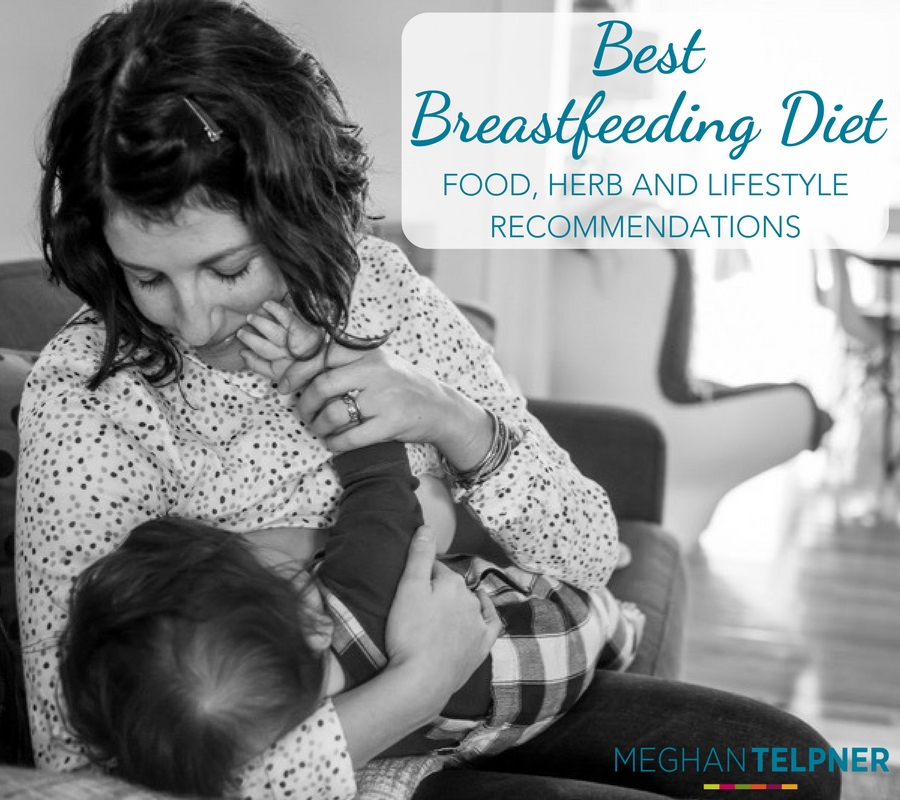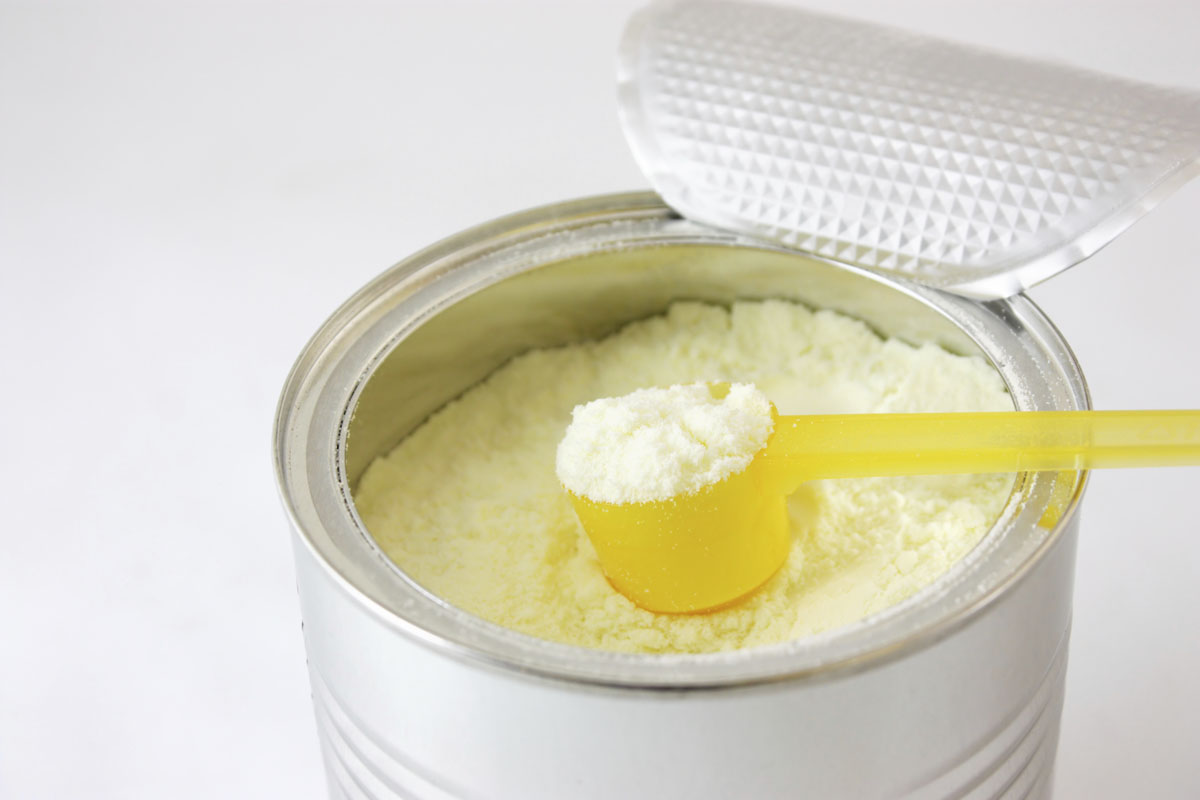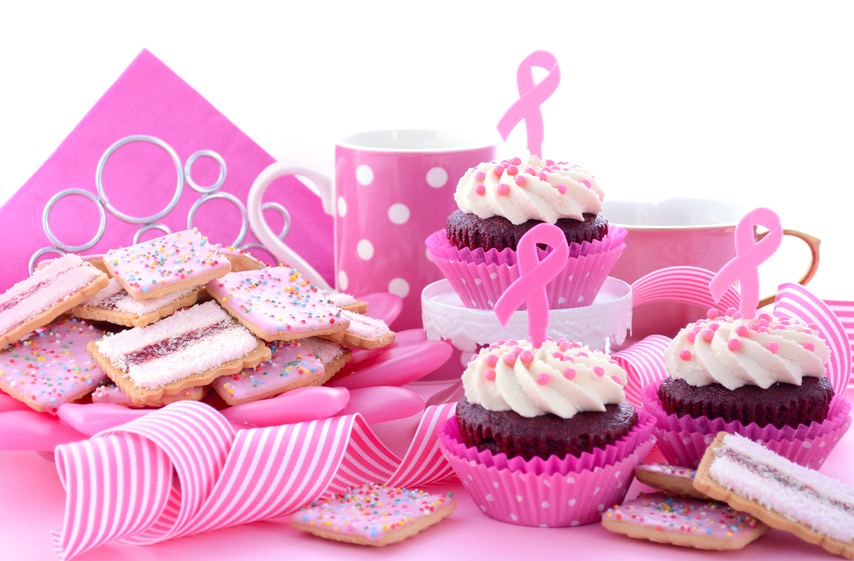Best Breastfeeding Diet: Food, Herb and Lifestyle Recommendations

Breastfeeding is not easy for first-time moms. I had heard about this, was warned, and was very poorly prepared for what was to come. There’s also not that much you can do to prepare, except to expect anything. The latch can be tricky, your nipples will hurt, possibly bleed, and it can be draining (physically and emotionally!). Even second time moms often find that the experience nursing their second is different than the first. Different baby, different habits and likely another little one or two running around. Is there a best breastfeeding diet for moms that can help? Yes. And no.
I would love to tell you that there is one absolute and best breastfeeding diet for moms. Wouldn’t that make it simple? The reality is that there are loads of lifestyle and dietary factors that intermingle. Plain and simple, there are a lot of factors that affect breastfeeding success and unless the root cause of the challenge is addressed, there is no lactation cookie that is going to make the milk flow (but it might be delicious and sometimes that’s enough!).
There may also be many reasons, needs or circumstances that make breastfeeding not possible for you. That is okay. You are an amazing mom (and click here to know for sure that I mean this). We all are. We must always balance things out to ensure a mentally, emotionally and physically nourished mama. This can result in making choices and decisions to support this, even if it’s different from what you’d hoped or planned.
The intention in sharing this information is for the moms who are able to breastfeed, and looking for some inspiration to continue even when it can seem beyond challenging. The first six to eight weeks will be a challenge while you find your groove.
Let’s first start at the beginning.
Is Breastfeeding Worth The Trouble?
If you are able to make it work, while still maintaining your wellbeing and that of your baby, then yes, it is worth it.
There are a few barriers that may inspire women to quit before they even get going. -It may be tougher for your baby to take a bottle and that could mean you being tied to your little one, which could be a challenge if you have to work, or need/want to do something by yourself. Breastmilk also digests faster than formula so breastfed babies may wake more frequently at night and nurse more frequently in the day.
The benefits, however, are plentiful. This isn’t to say you can’t achieve these benefits without nursing. I recognize, of course, that for various reasons a mom may be unable to nurse her baby. My intention here is that for those of you on the fence, or who are feeling at the edge of your rope (hello those of you with a one-month old!), that it is worth persevering.
Beyond the obvious fact that for a good four to six months, you never need to think about their food makes it easy. You’ve always got their next meal ready to go! The health benefits to mom and baby have been extensively researched.
Benefits of Breastfeeding for Mothers
- Increased bonding with baby. Breastfeeding is a special time where you can begin the lifelong relationship with your child. Evidence indicates that breastfeeding enhances the mother-child bond, releases hormones like oxytocin that increases bonding and lowers stress, and reduces the risk of post-partum depression. That bond can even lower the chances of children growing up to have ‘internalizing disorders’ like anxiety and depression.
- Reduction in cancer risk. Breastfeeding can help lower your risk of breast cancer and ovarian cancer, which are some of the most common cancers in women.
- Postpartum weight loss. There are several studies that link breastfeeding to greater postpartum weight loss.
- Type 2 Diabetes. Breastfeeding can reduce your risk of developing Type 2 diabetes and metabolic syndrome.
- Lower Blood Pressure. The act of breastfeeding can reduce your blood pressure in both the short-term and long-term.
Benefits of Breastfeeding for Babies
- Optimal first food. Human breast milk has been the standard for centuries, biologically speaking. It’s designed for them! It contains essential macronutrients – protein and fat – as well as micronutrients like vitamins and minerals. In addition, breast milk contains compounds that develop and support the immune system, contribute to growth and development, reduce inflammation and help establish healthy gut flora.
- Immune support. Breastfeeding offers children the immune and anti-inflammatory support they need to build a strong immune system. Evidence shows that breastfed babies have fewer respiratory and gastrointestinal infections in the first several months of life. Later on, breastfeeding helps to lower the risk of childhood allergies, atopic dermatitis and asthma, and can even help prevent autoimmune conditions like celiac disease, inflammatory bowel disease (IBD) and ankylosing spondylitis.
- GI health. In addition to a lower risk of gastrointestinal infections and IBD, breastfeeding helps children begin to cultivate a healthy microbiome. Breastfeeding literally helps to ‘seed the gut‘ with healthful bacteria, and studies show that breastfed babies have a more abundant and more stable colony of microbes than formula-fed children. A good balance of gut bacteria is essential to digestive health, immunity and mood.
- Brain health. Breastfeeding helps babies with cognitive development. A number of studies have examined the link between breastfed babies and neurodevelopment and found that breastfed children have a higher IQ and brain volume than formula-fed babies. Those benefits don’t only apply to childhood – evidence shows that they extend to young adulthood, leading to intelligent young adults, and even lasts into old age.
- Nervous system development. Breast milk contains a number of compounds that contribute to the development of the nervous system, including brain-derived neurotrophic factor, a protein that helps develop new neurons and aids with memory.
- Obesity. Breastfeeding reduces the risk of childhood obesity and obesity later in life.
- Calming effects. The suckling, the skin-to-skin contact and the breastmilk itself releases hormones and opioids that have a calming and analgesic effect on babies.
I am just skimming the surface here about the benefits of breastfeeding for both moms and babies. You can read many, many more studies here.
Lifestyle Factors for Breastfeeding Moms

I am sure you want to skip straight ahead and find out the foods to eat and supplements to take to get the milk flowing. Be patient with me here as the lifestyle factors are the most vital component of the process. What we eat and how we live will impact the quality of our milk and the milk supply in general.
As I mentioned earlier and is worth repeating- there is no best diet that will resolve breastfeeding challenges if the root cause isn’t addressed. That root cause in many cases, may be resolved with a few lifestyle shifts.
Rest
I can hear you laughing at me. You either are a first time mom trying to figure out what the f*** just happened to your life or you’re a seasoned pro and have another little one (or two or more!) running around. However, rest is fundamental to milk production. Whether it’s a 10-minute bath, a 5-minute shower, a 20-minute restorative yoga or meditation practice, a poop by yourself… Take whatever you can get, put down your phone, and rest. If it’s the choice between folding laundry and laying down for 10 minutes – you know what you need to do. And though you may want to use your evening to catch up on life, your time may be better spent, at least a few nights a week, getting to sleep as absolutely early as possible.
Cuddle Skin-To-Skin
We are meant to be with our babies and we’re also meant to be naked. Being with our baby 24/7 and being naked all the time is likely not realistic for you. You may need to leave the house, for example. Really though, for many reasons and based on how you’ve chosen to parent (there are no wrong ways!), you may not be with your baby as steadily as you’d like. Take some time to snuggle with your little one skin-to-skin on the regular, as much as you’re able. The oxytocin released from the delicious snuggles can help stimulate milk production. This may simply mean shedding your top, and stripping your baby down when you are nursing.
Acupuncture And/Or Massage
The idea of having an hour of either acupuncture or massage may feel like an unlikely pipe dream. Try and make it happen. That hour spent getting your lymph moving, your chi flowing, resting and being nurtured is way better spent then the hour it would take to get to your doctor to get a prescription for Domperidone, the leading drug for nursing mothers.
Don’t Over Exercise
This is not the time to stress over the size or shape of your body. You have years to waste your energy on that if you choose to (I choose not to, by the way). Stick to the gentlest of movements and things you can do with your baby, like walking. That’s sufficient. Intensive exercise is a stress on your body and in the first three months (I’d even say six!), just take it easy. You don’t need your cortisol elevated, or your stress response triggered beyond what it already is (anyone else jump out of bed thinking it’s your baby crying when it’s just the dog down the street???). Let your body heal and recover, and allow yourself to adjust to all the newness in your life.
Optimal Dietary Considerations for Breastfeeding
There are a few key aspects to consider when choosing the optimal diet for breastfeeding moms. You want variety in your diet to ensure well-rounded nutrient and flavour variety. Studies have shown that a nursing mother’s diet impacts the food choices of her growing child later in life and can even help reduce picky eating and boost a child’s willingness to try new foods.
Beyond the basics of a well balanced UnDiet approach, there are specific areas to keep in mind as mamas strive to keep milk production flowing, optimize essential fat content of their milk, stay well hydrated and get an abundance of fat and protein to keep energy up and nourish the brain to help prevent postpartum depression.
The average nursing mother is burning up to 600 calories per day, just from nursing, producing somewhere around 600-750ml of milk per 24-hour period.
I recognize it can be a lot to think about, but with some gentle guidance and simple recommendations, it is doable.
Foods To Keeping The Milk Flowing
Galactagogues are foods with benefits specific to nursing mothers – they supposedly help increase milk supply. Why do I say “supposedly”? When it came to writing this section, I had the list of foods I knew of that were listed as galactagogues but I couldn’t actually find any evidence to support it. Most is anecdotal or based on traditional practices. That’s not to say it’s not real or valid, there just isn’t research that supports it. This is often the case when it comes to pre and postpartum nutrition– it’s simply not ethical to test pregnant women or nursing mothers.
You are bound to say, but Meghan, I just want to eat lactation cookies. Do you have a recipe for that. Guess what? A lactation cookie is just a cookie. Lactation cookies can easily be an excuse for exhausted mamas to binge on cookies. What we want is to focus on keeping that milk supply up by keeping ourselves optimally nourished
5 Galactagogue Foods Worth Trying
Below are foods that are commonly regarded as galactagogues. Again, there was little or no research to support this, so instead I share some other benefits. Either way- they are worth eating.
Flaxseeds
Extra benefits: These are rich in omega-3 fats, which are anti-inflammatory and great for brain health.
Ways to Enjoy Flax Seeds
- Sprinkle them on dairy-free yogurt, oatmeal or breakfast porrdige
- Use flax eggs in baking
- Make flax crackers
- Add them to smoothies
- Make energy balls or no-bake granola bars
It’s best to grind your flax seeds before you use them to improve digestibility.
Oats
Extra benefits: Oats are rich in fibre and B-vitamins, which help nourish the nervous system and boost energy levels.
Ways to Enjoy Oats
- Make oatmeal or overnight oats
- Cook a batch of homemade granola
- Bake oat bran muffins
- Add a tablespoon or two to a smoothie or elixir
Dark Leafy Greens
Extra benefits: Greens are high in antioxidants, calcium for bone health, and iron for energy levels.
Ways to Enjoy Dark Leafy Greens
- Make a salad – I love this kale salad
- Bake kale chips
- Toss them in soups and stews
- Add them to smoothies
- Make a frittata
When cooking with greens, I like to add them at the end of cooking so they are just wilted. This helps to preserve their nutrients.
Brewers Yeast
Extra benefits: It’s high in B-vitamins and trace minerals like selenium and chromium.
Ways to Enjoy Brewer’s Yeast
- You can bake with it, but it’s probably easiest to take this one in supplement or powder form.
Kombucha
Extra benefits: A rich source of beneficial probiotics for gut and immune health.
Ways to Enjoy Kombucha
- Drink it straight up!
- Blend it with frozen fruit like strawberries or raspberries for a frozen ‘mojito’.
It’s easy to make your own kombucha so give it a try!
Herbs To Increase Milk Supply
You will hear many recommendations around foods and herbs for milk supply. Again, there aren’t a ton of clinical studies about galactagogue herbs, however, several literature reviews note that women are using them and perceive them to be beneficial to increasing milk production. I am one of those women. However, I will stress again that though herbs can help boost supply, they may not be addressing the root cause of why supply is insufficient. For example, if you are nursing and need to be at work eight hours a day and the only place to pump is the communal bathroom- then likely your supply will go down in which case herbs may be the best solution.
If you are serious about increasing your supply, high dosing specific herbs as a supplement can be very effective. You’ll often find ready-made tea blends that include some or all of these galactagogue herbs. Some herbs include:
- Fenugreek: In this study, fenugreek tea helped to boost milk production. Fenugreek is easy to find and can be incorporated into cooking (I like using it in pizza crust), or as a supplement (see below). Fenugreek is probably the most accepted and commonly used galactagogue.
- Blessed Thistle: In this study, when mothers were given blessed thistle, they were able to boost their milk production to target amounts within 30 days.
- Goats Rue: In a survey of nearly 200 mothers, 75 of women self-reported that goat’s rue helped to boost their milk supply.
- Raspberry Leaf: Raspberry leaf is often used in tea blends for nursing moms.
- Fennel: In addition to its potential to help with milk supply, fennel is wonderful for relaxing the muscles in the digestive tract.
Supplement Recommendation For Increasing Milk Supply
This recommendation was made to me by a midwife and it saved me. Producing enough milk meant that I would get some longer windows of time to do things other than nurse, and also helped me increase my supply enough that I could pump between feedings. I am sharing this with you, under the assumption that you will consult with your natural health care practitioner to ensure this is a safe thing for you.
I used Nature’s Way brand in the following dosages:
- Fenugreek (610mg capsules), 3 caps, 3 x day
- Blessed Thistle (390 mg capsules), 3 caps, 3 x day
Yes, this is 18 supplements per day and within two days at these high doses, my milk supply increased dramatically and I could then reduce to one cap of each, three times per day.
Get In The Fat: Essential Fats and Fueling Fats
Nursing mothers are doing a whole lot. For the first couple of months, there is a massive amount of healing going on in our own bodies, not to mention that we are the sole provider of nutrition for our rapidly growing baby. It is therefore so very vital that you are getting enough fat in your diet. This is not the time to count calories, or worry about getting your body back to its pre-pregnancy size and shape. This is the time to fuel with all your might.
Fat and Baby’s Brain
Essential fats in the mother’s diet pass through breast milk and play and important part in the developing brain and nervous system of the baby. Our brains are 60% fat and the first six years of life are crucial for brain development. Some of the key fats we need for brain health are omega-3s, specifically DHA, which is essential for brain development, vision and learning. Studies have linked low DHA levels to lower neural development.
Interestingly, one review proposed that the modern human brain is a result of ‘having first evolved fat babies’, who then went on to become intelligent, ‘survival of the fittest’ kind of adults. If fat babies are an indication of later intelligence, my Finn is going to be a genius.
Fat and Preventing Postpartum Depression
Evidence indicates that fats, particularly the omega-3s, can help prevent and address depression and anxiety.
You can get the full rundown on fats in this post, but some excellent sources of fat-rich foods include:
- Eggs (especially the yolk!)
- Ghee
- Pastured beef, chicken and game
- Organ meats like liver and heart
- Nuts and seeds and their oils
- Coconut oil
- Cold water fish
Hydration Is Essential To Making Milk
As I mentioned earlier, nursing mean creating a whole lot of nutrient dense fluid to feed and nourish your little one. That has to come from somewhere, and staying hydrated is key. For the first few months, I had glasses of water all over the house and went to bed with a large jar of water beside my bed. I couldn’t get enough water. You can find more water-drinking tips here. Beyond water, there are additional ways to stay well hydrated including:
- Bone broth
- Herbal tea (get a galactagogue tea- two birds, you know!)
- Fresh, organic vegetable juices
Additional Dietary and Lifestyle Considerations
The following references are listed below – not because they’re not important, but because I have written about them in depth and so have provided links to the posts if you want to learn more.
- Eat organic. Plain and simple. You want less chemicals in your body and in your breast milk.
- Avoid GMOs because there are no long term safety studies. Don’t let your baby be the study.
- Ditch the chemicals in your beauty care products. These chemicals are fat soluble, what goes on your skin, ends up in your body, circulates and can land in your breast milk.
- Avoid caffeinated drinks.
- Avoid all foods with artificial colours and flavours.
- Bathe in clean water.
What About Alcohol?
If you are having challenges with milk production, alcohol is not going to help. It is best avoided at that time.
I drink wine on occasion with dinner and I feel fine about that decision. There is a difference between a glass of wine with a meal and downing shots of tequila or drinking martinis while nursing. Be mindful and moderate about it, use your best judgement and of course always check in with your primary healthcare practitioner.
Managing Breastfeeding Interventions
Like all things, we have choices we can make and must always weigh the risk and reward. There are loads of amazing lactation consultants and they are can be invaluable in helping you and your baby find your groove. I highly encourage you to locate one in your area who can offer you support. Finding your local mom’s group on Facebook and asking for referrals could be a great way to find one.
As much as possible, try and avoid interventions. This can include the following:
- Prescription nipple ointment: The commonly prescribed options have antibiotics in them. As much as possible avoid this unless absolutely necessary. This antibiotic can affect the microbiome of your baby, and also leave you susceptible to nipple thrush (like a yeast infection on/in the nipple).
- Silicone nipple shields: These are great options to help you get over a period of extra chapped/bleeding nipples, but shouldn’t be a permanent solution. They can contribute to increase risk of nipple thrush.
- Prescription for Milk Supply: If it makes sense for you, try the herbal option first. There is no pharmaceutical that isn’t without risk so it’s important for you to be aware of the potential side effects and consider the risk and reward.
- Latch Issues and Tongue Ties: It was suggested to us that Finn may have one. After a week in the hospital, I wasn’t keen on him going anywhere near any other interventions. We opted to see an osteopath who did a cranial sacral adjustment that fixed his latch and his tongue was left alone.
Last Word On Breastfeeding: Don’t Be Afraid To Ask For Help
Though I am not an expert on this subject, I always aim to make informed choices when it comes to my health and wellbeing, and now that of my son.
My son didn’t arrive in the world as we’d planned and when he was on his 3rd day in the NICU and we were given the go ahead to nurse, I felt like his life depended on it. With every drip of fluorescent yellow dextrose going into his little body, I was desperate. The process was not easy for us and we, thankfully, found an amazing lactation consultant who came to the hospital to help me make it happen. She also came to our house a few weeks later to see how it was all going.
I also had incredible support from my sister-in-laws, all having nursed their babies and all able to talk me through how to manage bleeding nipples, pumping issues, and much more.
My Tribe
The following are the women in Toronto that I called upon in my immediate postpartum period to help me find my way:
- Acupuncture: Tanya Smith
- Lactation Consultant: Taya Griffin
- Osteopath: Janet Walker
- Postnatal Yoga: Laura Wood of & She Moves
- Massage In Your Home: Raissa Sauve
Though being a new mom can feel very isolating, you are not alone. Please know this. There are amazing communities perhaps where you live, but also online. There is a sisterhood in motherhood unlike any other I have experienced. We are here for each other.

Fill out the form below to get your Baby Food Inspiration Guide.
Free Resource Library
Enjoy more than 40 downloadable guides, recipes, and resources.

Photos by the one and only Catherine Farquharson
Free Resource Library
Enjoy more than 40 downloadable guides, recipes, and resources.
























I m a working women and i have to travel alot because of my work, i used to Feed my 4 months old baby girl ,its really is the most complex things i have ever done.Now i m going to start my baby girl on formula i am very worried about ending up feeding her the wrong formula.
A whole lot of online research got me to start her feeding on Holle ‘Goat Milk’.
Getting it from an online store ever since and i think now that i see she is doing good on formula and growing super fast i am satisfied with my choice.
Thanks